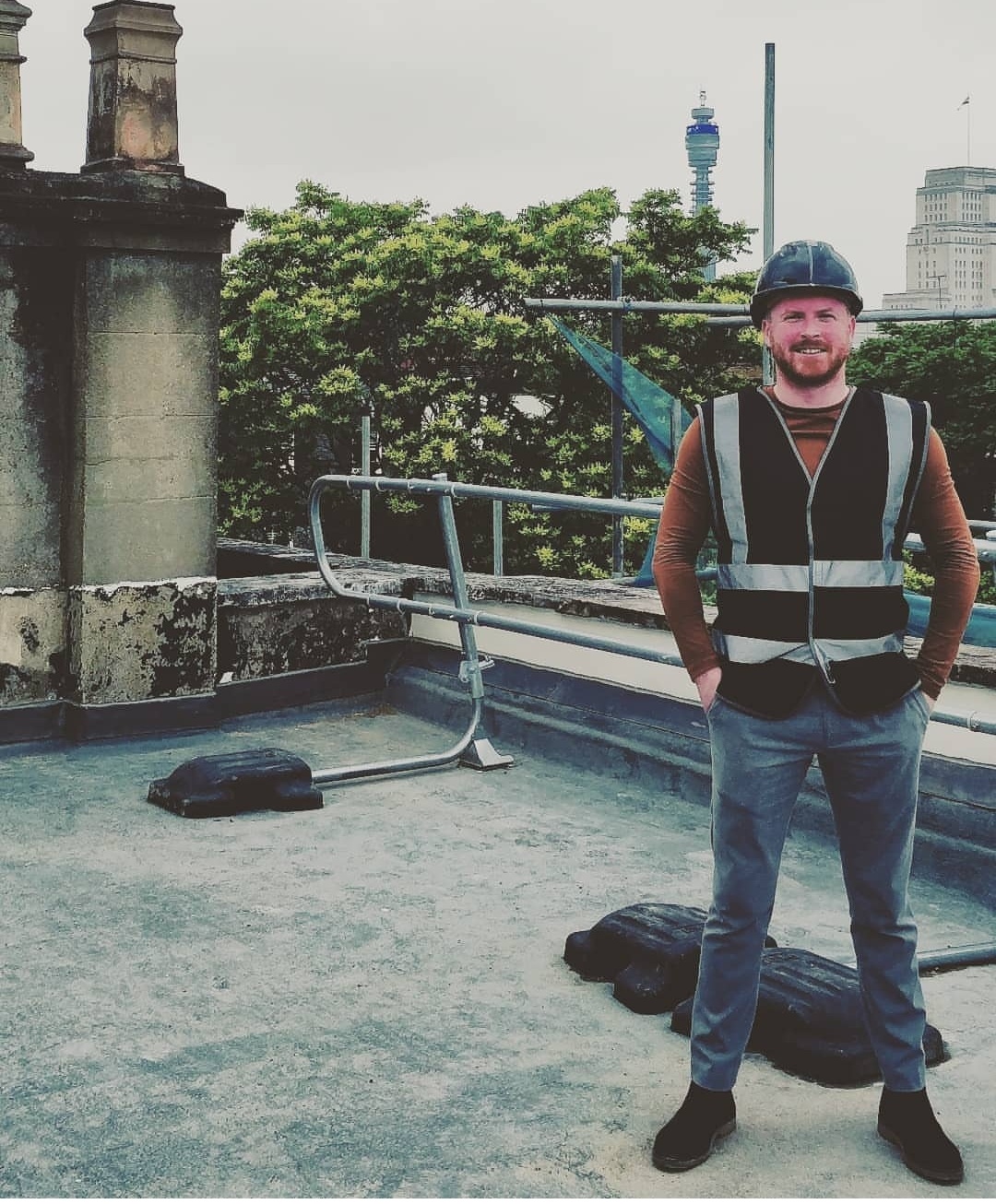Firstly, when I start the process of writing a new blog, I naturally have a quick search around Google to see what has come before and what levels of content are out there. Either for quality, quantity, length of what people have previously discussed. Strangely, there seems to be a distinct lack of discussion on this subject. Which I find strange – is it because, it is such a natural part of life nowadays that it isn’t discussed or, do we not give it the importance it may deserve?
Secondly, I guess I ask myself; why am I writing this blog? What is my goal out of writing it? What is the point?
Well, I think the answer is because deciding to move careers to a new industry is not an easy decision. Your job or career is fundamentally one of the most important parts of your life alongside friends, family, health and stability, right? So, surely it isn’t easy at any point of your career to decide to uproot what you know and jump sector or industry. From experience I can tell you that it is not easy, it must put people off when they think they need a change or a new challenge, in my opinion. So this blog, I guess, has two objectives; 1) why people should do it and how. 2) why employers should take people on from other industries.
Setting the scene
A few weeks ago, I visited some close friend in Leeds and as you do on a Sunday we went for a roast and a couple, plus a couple more bottles of red wine. One of my closest friends is currently in between jobs as nothing has turned up yet. We both come from quite a niche background of Operations within the party, cocktail bar scene in London. So, I posed the question to him; have you thought about changing industries? Anyways, without going in to any more detail on his situation, it got me thinking about my decision to take the leap from hospitality that I had done for 15 years and had turned from a short-stay job cleaning tables one Christmas to be my bread and butter working my way up from bottom to the top. It was an industry that formed me as the person I am today and gave so many amazing friends, like the ones I was drinking with in Leeds.
When you think about it, before the late 18th Century many people worked on the land and made their living from agriculture. With the onset of the Industrial Revolution, people downed tools in agriculture and moved over to the secondary sector. This trend has been continued throughout the 19th and 20th centuries through to the present day. So, it is nothing new for people to change up what they do, we can agree. But why does it sometimes present such a problem getting into a new industry or employers not understanding the pros of hiring people from what seems a foreign industry?
Where did I come from and how did I end up writing this today?
As I mentioned, I began my long hospitality journey cleaning tables for a generic high street American themed restaurant chain. After that, I went on a little journey with a few other companies including nightclubs, back to mentioned American themed chain, to working for a family-run cocktail bar until I found what not only become work but my second home that I loved and adored. In 2007, I began with a cocktail bar company based in South-west London that was operating three bars across south London at the time. Anyways, to cut out a huge chunk of my memoirs I end up leaving the company in 2017 having worked my way up to Group Operations & Training Manager. When I left, we had just opened two new bars which took the total count of bars up six, but these weren’t just six bars in London these were some of central London’s biggest bars. They were big, busy and sexy. I had been on that emotional rollercoaster with the directors celebrating the wins and learning from the losses with them, and there were a lot of both. These guys had become more than bosses but my close friends. So, why would I want to leave something so perfect? I still ask myself that, but I guess when you think it is time to face something new you must embrace it whole-heartedly otherwise you will not succeed. That was where I was at, it was time for something new.
I left without a job as I knew I was going to take some time out after not doing so for a couple of years, so I wasn’t looking before I left nor for a while after. I then started looking and took a bit of different avenue and wanted to go into the pub game. I got some good offers, one I accepted but then turned down. It was then that I realised I wanted a new challenge. There was something that just made me think my journey with hospitality at that point was done for that time.
After a while, I realised that I really didn’t know what I wanted to do. I had mulled over many ideas, but nothing sprung up and said pick me! At this point, I still never thought that either the opportunity to work in construction would have arisen or that I would have taken that route. But this is what happened, and I am pleased it did.
I met my director through a mutual contact, and they set us up for a meeting on a Wednesday afternoon. The meeting was very casual but that made it easier as I felt comfortable talking about my experience and skillsets. When the conversation is casual it also makes it easier for you to delve into what they need to continue to develop in their business and for you to identify where you can add value. We had a great discussion that lasted for a good few hours and it was at the point I realised my director’s drive, passion and vision for what we do. The reason this instantly hit home is that it is what I had been used to for the last decade. Seeing the unquestionable strive from the director(s) to be better, to be the best and to continuously improve. I left our meeting with a real buzz thinking I wanted to work for this company because it matched my professional ethos.


So, what advice would I have for someone that is looking to take the step into the potential unknown?
Many contributing factors come in to play when switching up industries, or even when hunting for a new job in the same industry. When I think back there are some points that stick in my head and some things that if I were to do it all again, I would take into account this time around.
1. Study something to improve yourself– studying does many great things on many great levels. Not only does it improve your knowledge it also improves your CV. It can also open avenues within that specific degree, institute or charter regarding recruitment. I would also recommend choosing to study something that is not your strength. I think it is easy to study something you are already great at, but you are not really developing yourself.
2. Research, research, research some more– it is imperative that you research all the industries you are contemplating joining. Like any potential new job, make sure you research the business or director even more so!
3. Network– networking will always be a tool that is at your disposal and one that you should use. It can get you in rooms with people that you would never normally get the chance, even at an interview stage. The great thing about networking is that a lot of the time it is free. Whether it is an event or online like LinkedIn groups.
4. Use your contacts– Use the people around you. You have spent years building a network of people so it would be stupid not to utilise this. It could cut out 80% of the battle.
5. Do not rush it– it would be easy to jump in headfirst with the first offer that comes your way. But it is imperative to shop around and see what else is out there. If you take the first opportunity, then you have probably not done the right amount of research – unless the first offer is the dream job or company – then take it.
6. Make sure have stability– if you are looking for completely new surroundings then it may/will take time. Make sure you have the means to get you through what could be a six-month period or longer, i.e. financially. If you have a job then keep it, do not believe the grass will always be greener on the other side straight away.
7. Find a company, director or a boss that matches you– as I mentioned previously, this was the biggest factor in taking my job. I didn’t necessarily want to work within construction, but I did want to work for my director and his company. Make sure they match your professional ambition, culture or beliefs. Also, make sure you know they will invest in your development – so many companies do not.
8. Be realistic– if you are moving in to the unknown without experience it is highly like you may have to take a cut in pay or position while you learn the ropes and develop yourself in to the industry and company – make sure you put a review date in at the beginning for these things to be discussed and reviewed.
9. Focus on your skillset, knowledge & experience– throughout your career, you have picked up a lot of knowledge and built an incredible skill set so make sure you do not lose sight of that. Use your skillset, knowledge, accreditations and experience to show where you can add value to someone’s company. Most importantly, do not try and fit someone else’s requirements. Stay true to yourself.
10. Use a recruiter– a recruiter’s job is to advise you on the best route and avenue to take. They have the contacts at their disposal to help you get your foot in the door. They have a pool of contacts that you don’t so make sure you use it.
11. Passion, desire & commitment– finally and maybe the most important. If you have taken the plunge into a new job but you’re not sure it is for you, make sure you still show the passion, desire and commitment that the company deserves. Things do not always work out the way you hoped but do not ruin your hard-earned reputation because of it.

The Recruiter
If you are a business owner, recruitment manager or department manager it will always be the safe option to hire someone from your industry with the know-how already. But is this always the right answer? If you believe that this is the right answer, then you may be limiting your company’s growth. Employing talent from outside your norm will not always work out, but when it does it can add a whole range of opportunities and value.
1. Embrace difference– look to recruit people who come from different cultures and backgrounds to promote and endorse diversity. While hiring is based on merit adding diversity to your workplace will always improve the dynamics.
2. Take the risk– it can be daunting to hire someone with limited experience or exposure to what you do but while you’re sitting on the fence, someone else will realise their worth and snap them up. People improve what you do so take the risk on what people can do.
3. Add new energy– it is natural for businesses, offices or teams to become stagnant, inputting fresh life to the day to day operation will spark new life and energy into the environment, especially if they are new to what you do.
4. Allow them to add value– when creating new systems, procedures or company culture invite them to have an input. They will have something to add so give them a seat at the table.
5. Listen– it is easy to dismiss what they have to say on day-to-day operations until they have learnt the ropes, but the chances are, they can still add value. Do not dismiss everything they say.
6. Make sure their induction is thorough – Once you have made the great decision to take someone on, make sure they have a development plan in place, and someone manages it. Do not allow them to run before they can walk. It is easy to think they can take on the world but before you know it you have given them too much and their confidence is broken. Make sure you set review dates, ensure they happen once a week in the beginning. Even if it is a five-minute chat, make sure it happens.
7. Buddy them up – everyone needs somebody they know they can go to at the beginning of a new job. This is especially true when they are stepping into the unknown. Knowing they have someone to go to without feeling silly or that they are bothering someone will give them the comfort they need.
Conclusion
Whether you are looking to change what you do, or you are thinking of hiring someone with little to no experience in what you do, the reward can be huge. It might not appear this is true straight away for both, but with patience, understanding, realism and commitment the possibilities are endless.

Article by Stuart Moore at Gaysha Ltd, a London-based fit out & refurbishment contractor operating across the residential, commercial and industrial sectors.
Gaysha Ltd, 5th Floor, 8-10 Grosvenor Gardens, London SW1W 0DH
Tel: 0203 887 3623 Email: info@gaysha.co.uk Web: www.gaysha.co.uk







